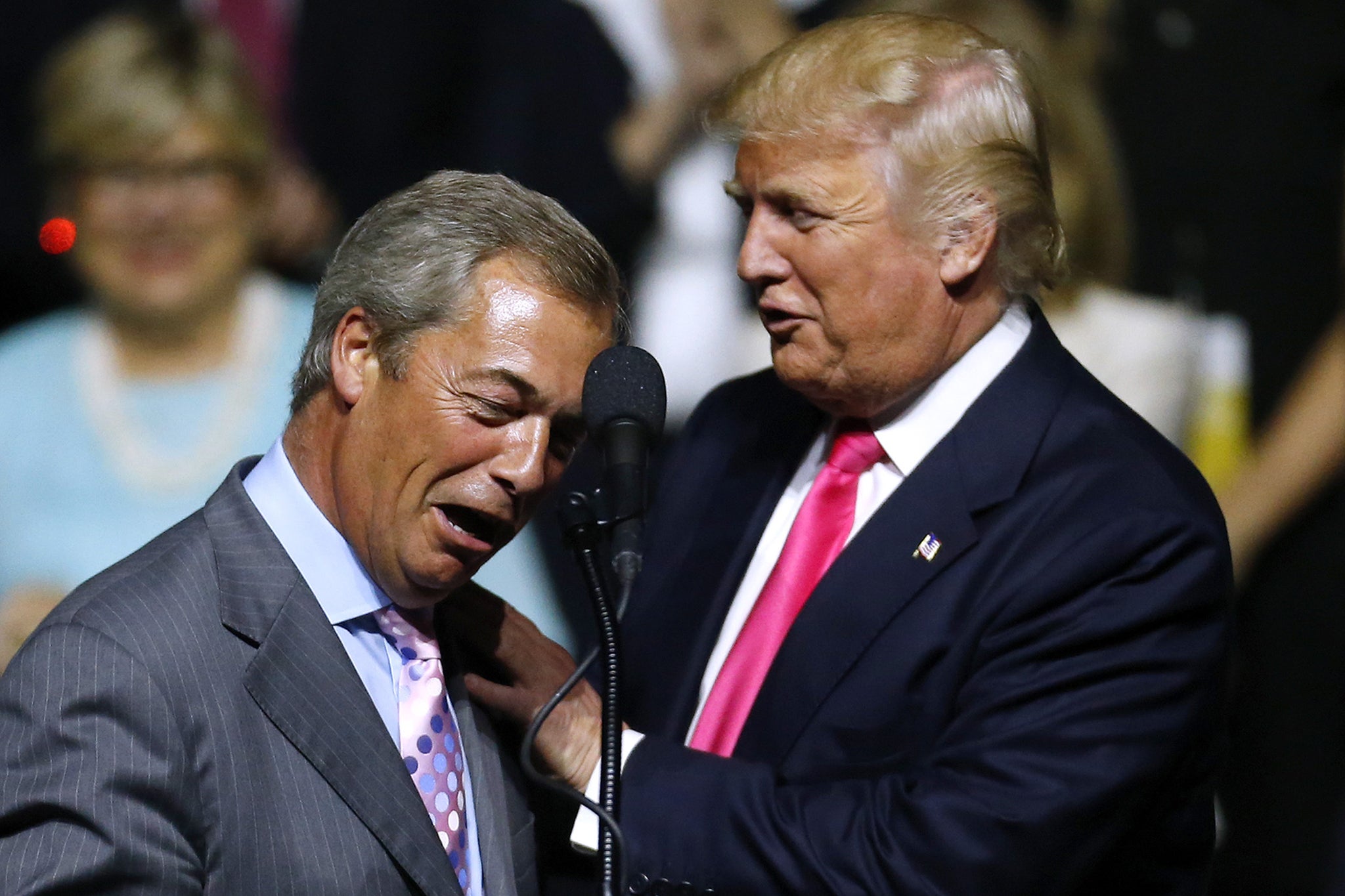The next 18 months will decide whether Nigel Farage’s Reform UK is a serious party or just Candy crush
News analysis: Reform UK is benefiting from a perfect storm for all the mainstream parties, but has yet to prove if it is anything more than a one man show platform for Nigel Farage or is something more significant


Like a leaky old boiler the constant drip, drip, drip of Tory defectors to Reform UK appears to be draining the life away from a greatly weakened Conservative Party just weeks into Kemi Badenoch’s leadership.
And the photo opportunity today with billionaire businessman Nick Candy certainly appears to suggest that Nigel Farage and his party will importantly have the money to achieve their goal.
That goal is ambitious but simple: To win the next election and install Nigel Farage as prime minister.
But with just five MPs after winning around 15 per cent of the vote in July, there are serious questions about whether Reform UK can in reality be anything more than a wrecking party for the Tories.
After all, Keir Starmer’s massive majority was built on getting less votes than Jeremy Corbyn when he was thrashed by Boris Johnson in 2019, and winning over just 20 per cent of the entire electorate (when the 40 per cent who did not bother to vote are taken into account). Starmer had Farage as much to thank for his victory as he did himself, with scores of Tory seats going to Labour and the Lib Dems after Reform split the vote.

Farage’s poll surge
The recent polls have shown a surge of support for Reform, with one putting them in second place UK-wide, another above Labour and the Tories in Wales, and the recent Techne tracker for The Independent suggesting a three point boost in a week.
Is this a blip though? Are Reform actually a serious threat? Or is it a one man show with benefitting from Farage’s popularity with a section of the electorate and little else?
There is a strong case to say that Farage and Reform are currently riding a populist wave of disatisfaction with all the mainstream parties. By any objective analysis Keir Starmer has had an extremely difficult start to government. He has been beset by scandals about freebies, as well as losing a chief of staff and a cabinet minister.
Meanwhile, Rachel Reeves Budget has infuriated pensioners, farmers, businesses and many more. Labour has a desperate communication problem and in a short space of time have lost what little goodwill they came to power with.
But the Tories are not in any better shape. They greeted defeat with an extraordinary four month leadership contest which felt like even longer and made them irrelevent. Since becoming leader about a month ago, Kemi Badenoch has said and done little positive, instead being largely reactive.
The Lib Dems with their 72 seats have yet to properly work out whether they want to oppose the Labour governnment or the Tory opposition yet. Their messaging as a result has been bland and a little confused.

The significance of Trump
Into this void has stepped the self-styled “father of populism” Mr Farage and his Reform Party. His hopes are not just buoyed by defections from the Tories and opinion polls but the rise of populists in Europe and in the US with the re-election of Donald Trump.
But now he is faced with the challenge of proving whether there is more to his assertions of changing politics than mere bluster. Farage will not be short of cash and he will have a ground campaign thanks to another former Tory defector, his party chairman Zia Yussuf.
The first battle between the Tories and Reform - ongoing as it happens - is one for relevance. And the early rounds for this appear to be the party that Donald Trump’s Maga Republicans endorse and support. Farage has Trump (a personal friend) and the liking of figures like Elon Musk. But Ms Badenoch has her own allies including vice president election JD Vance, Florida governor Ron DeSantis and Texas governor Greg Abbott.
But no wonder it feels like Farage is more likely to be found on the other side of the Atlantic than in his Clacton constituency.
In recent days The Independent has had a number of briefings from the wider Team Trump’s different factions battling among themselves over whether to go Tory or Reform with their allies in the UK. Farage appears to be winning that contest currently but the Tories are not out of the race yet.

Breaking the two-party stranglehold
The real issue will be whether Reform can break the Tory hold on the two-party dominance in first past the post. Such an achievement would not be unprecedented. Around a century ago one of the two main parties the Liberals collapsed and was replaced by Labour. That was without social media and in a time of much more tribal politics amongst voters.
But many have failed on the way. The SDP, Lib Dems, Ukip, and Greens never failed to break the stranglehold of the big two.
The tests over whether we are seeing something historic will come in elections. Next year’s council elections in May will provide an early indicator over whether the Reform bubble is fit to burst or here to stay. But the real test will be in May 2026, when the Welsh Senedd and Scottish Parliament have their elections.
Reform are piling resources into Wales, which they believe can be a platform for wider success in the UK in 2029. If they easily beat the Tories in the Senedd and maybe even overtake thm in Scotland, then we will know that they are on the cusp of being a significant force in British politics. At that point the alarm bells in Conservative Campaign Headquarters (CCHQ) should be ringing very loudly.
But if Reform fails in making those breakthroughs then it is unlikely they are anything more than a Farage ego-driven flash in the pan.
It all means that there is everything to play for in the next 18 months of British politics and, as yet, the outcome is hard to predict.
Join our commenting forum
Join thought-provoking conversations, follow other Independent readers and see their replies
Comments
Bookmark popover
Removed from bookmarks